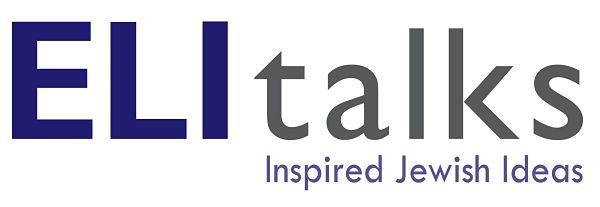An Eli Talk Response by Rabbi Lizzi Heydemann
In the Twelve-Step recovery programs, the first step is recognizing that we are not fully in charge of our lives and that we need to turn our lives over to a Higher Power, however we understand it. For many Jews, that idea presents a real challenge. Because Jews don’t talk much about God, we don’t know what to believe, or what to call what we do believe in. Moreover, if we do have a concept of God, it is very likely not the the Higher Power we actually believe in. I talk to a lot of Jews who are spiritual but not religious, mostly because when it comes down to it, they believe in something (and it might even be a something with a capital S), just not God.
Eliana Light is a girl after my own heart. Articulately, and with the gravitas of serious Jewish learning and tragic personal experience, she humbly suggests that Jews should just stop talking about God.
Listen to her inspiring ELI talk.
We should stop using the word itself, God, because it comes fraught with so much unhelpful and misleading baggage that has led us to believe that if we reject the baggage, the we must not believe in or have a relationship with a Higher Power at all. Rather than being a comfort, God can present a challenge at best (if God is all-good, all-powerful and all-knowing, why do bad things happen to good people?) or a personal or national assault at worst (if God is all-powerful and could have stopped the Holocaust, or the death of my father, why didn’t He?).
The result of learning about God in the way that most religious schools teach it– as a character in Torah, as the hear-er of our prayers, and as the hero/judge/king figure in our holidays) is that when the inevitable happens, when the world disappoints us, we will face what Eliana calls “a God gap.” Our idea of God will not live up to the ideal of what God should be.
Eliana thinks this need not be so.
Instead of a painful process of rebellion against the tradition, and, if we’re lucky, a recovery of our relationship with the a more expansive version of the Divine, Eliana suggests that we start kids early on a different kind of Divine diet. A buffet of alternative words to describe God, each one of which comes with its own nuanced and different theology. Merciful One has a different feel than Rock of Our Lives. The former might be a more helpful metaphor when we need to feel unconditional love, the latter might be for a moment we need stability and permanence. She also recommends that we all acknowledge that the God we refer to today may be different from the one we find comfort in next week or next year. That’s not a breakdown– those are breakthroughs and demonstrations of our flexibility… and God’s, too.
So next time you’re feeling confounded by the Higher Power you don’t or can’t believe in, take belief off the table, take God off the table… and ask what you know.
Do I know who formed the sun shining down on my cheeks in the morning– the same sun that feeds the kale in my backyard the photons it needs to be nourished, so it can nourish me? Do I know where the surprise of love comes from– the warmth I feel when my husband kisses me goodnight– a guy whose name I barely knew two years ago who is now my husband? I must admit: I don’t know these things. But I know sun, and I know love, so I can bless the the source of Light for that sun, and the Source of Love for that love.
Funny… those ideas happen to map perfectly onto the blessings right after barekhu in the morning– Yotser Or (the Creator of Light) and HaRachaman, the Merciful One who showers us in ahavah raba– endless love. Those are names of God I recognize. I don’t believe in them. I know them.
I love that Eliana’s God-of-choice, or rather, her favorite metaphor, is the traditional HaShem, the Name, because it means that in prayer, when addressing God, you can literally say Blessed are You, “insert Name here,” before inserting the metaphor of the experience you know, to bless the aspect of God with which you have an actual, personal relationship, based in the reality of your life.

